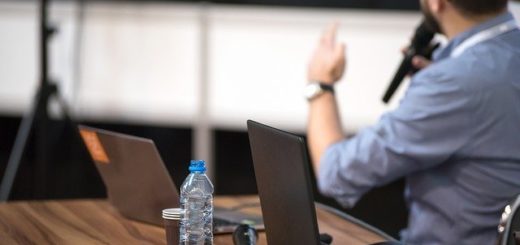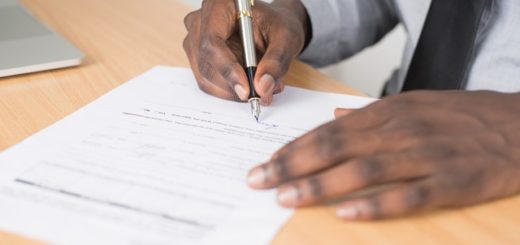Consultancy to provide Hydrogeological Assessment in Laikipia County
Location: Laikipia East constituency, Tigithi Ward, Solio villages (7)
Habitat for Humanity Kenya is seeking to hire a Consultant/Consulting firm with the capacity to conduct a comprehensive Hydrogeological /Geophysical Survey, survey of existing boreholes, assessment of the pipeline community water project and related studies for prospecting on identification of the sites for rehabilitation and drilling of new boreholes and submit an accurate report to guide the processes.
Background and Rationale
Habitat for Humanity Kenya (HFHK) was established in 1982 as a not-for-profit, non-governmental organization with the goal of enabling low-income families access decent and affordable shelter. It is an affiliate of Habitat for Humanity International (HFHI) and is governed by the National Affiliation Agreement of 2019. The organization’s approach has evolved from direct provision of homes to families with access to land, to providing support and capacity building to community level structures as a catalyst for transformation. In the last 40 years, HFHK has supported more than 345,000 families across 9 counties in Kenya through housing micro-finance and direct construction. We are currently operating in Laikipia, Homabay, Kisumu, Tana River, Machakos and Makueni. Our current Business Plan (2020-2025) has outlined four programmatic areas, namely: Financing for Owner-led Construction (FOC); Settlement-Based Practice (SBP); Secure Land Tenure (SLT); Disaster Risk Reduction & Response (DR3). HFHK’s programs has been based in Laikipia County since 2016, with a portfolio of interventions on Home Construction, Water Sanitation and Hygiene (WASH), Schools Infrastructure, Access to finance through saving groups, Land Rights and Cash transfers. Over the period, our presence was heavy in Laikipia North Constituency where more than 10 donor funded projects were implemented. As part of initiatives for enhancing resilience of communities in the Arid and Semi-Arid Lands (ASALs), we are exploring the possibility of designing a new project for BMZ funding. The project is aimed at enhancing access to safe drinking water and increased income for rural populations in Laikipia County. The proposed project is exploring a Theory of Change on Economic empowerment (increased income)’ being delivered to ‘rural populations’ through ‘access to water” for drinking (domestic and livestock) and farming (micro-irrigation) and improved social structures (cooperatives). Solio Resettlement Scheme is being considered for this new project.
Established in 2009, Solio Ranch Resettlement Scheme is located in Laikipia East Constituency. This is the place where Internally Displaced Persons (IDPs) who were evicted from the forest in 1989, were resettled by the Government on a 15,000 acres parcel of land bought from Solio Ranch. The settlement scheme is currently hosting more than 3,970 families originating from the slope of Mt Kenya (Chehe, Hombe, Ragati and Kagochi) and the Aberdare Ranges (Zaina, Kabage and Gakanga). Each was given 4 ½ acres, which includes the detached ½ acre for homes and 4 acres for farming. There are seven villages in the scheme (Furaha, Rehema, Bahati, Tetu, Mathingira, Makandamia, Baraka). The last 5 years had witnessed investments towards the provision of water in the settlement scheme. Through a project co-funded by the county government of Laikipia and Water Sector Trust Fund (KES 143 million), access to clean and safe water for domestic use, is progressively being provided to the 7 villages (19,850 people, 11,040 grade cows, 22,380 goats), 7 primary schools (2,240 pupils), 2 secondary schools (160 students,) and 1 health center among other facilities. Initially, this area was a swathe of treeless land, but today, villages are planting trees and keeping livestock. The county anticipates that the provision of water will enable the growing of oranges, onions and vegetable within the Solio belt, establishment of quality beef through feedlots technology and increased dairy production. They also foresee impacts of increased incomes and improved living standards for scores of families that lived in abject poverty.
One of the HFHK’s thematic priority areas in the current 2020-2025 strategic plan is the settlement-based practice in which HFHK aims to facilitate the development of household and decentralized local infrastructure for housing. Under this thematic priority area, the goal of HFHK is to see safe, resilient and healthy communities settled within quality housing and with access to basic services and infrastructure, including organized community structures (Co-operatives) in the management and implementation of interventions in housing, energy, WASH, and DR3. As part of this new initiative, HFHK through BMZ funding is targeting to spire economic empowerment through access to water for drinking (domestic and livestock) and farming (micro-irrigation) and improved social structures (co-operatives) in Solio Resettlement scheme, Laikipia county.
Laikipia county in general is a semi-arid area with limited access to safe drinking water, hygiene and sanitation (WASH) services, which is critical for the health and well-being of its population as it prevents the spread of disease-causing germs.
Purpose and Objectives
The main objective of this project is to carry out an ESIA study, hydrogeological /geophysical survey, assessment of the existing boreholes, assessment of the Aberdare’s community water project and related studies for prospecting on identification of the sites for rehabilitation and drilling of new boreholes and submit an accurate report to guide the process with the aim of identifying the aquifer system, to localize drilling sites with high potential of good quality groundwater and finally to supervise the drilling process.
The survey shall be carried out in the following order:
- Carry out ESIA survey
- Hydrogeological assessment of whole area; maximum extractable water, rain water harvesting options, water quality concerns and mitigation options.
- Evaluating the groundwater situation based on compilation of existing relevant data (e.g. drilling logs) with additional classical hydrogeological field data collection (e.g. survey of water points, water levels, water quality) leading to the identification of favorable exploration zone.
- Surveying of existing boreholes within the seven (7) villages of solio- with clear observation of the following parameters; Quality of water, yield, water usable for livestock and irrigation.
- Assessment of the Aberdare’s water scheme- Would reliable, sustainable provision of domestic water to all households be a viable option? (Using data from NAWASCO and data from independent expert.
- Carrying out groundwater exploratory field geophysical investigations to identify exact drilling locations.
Specific Objectives
To conduct a hydro-geological/geophysical survey, assessment of existing boreholes, assessment of the Aberdare’s water scheme/community water project and related studies for prospecting on identification of the sites for rehabilitation and drilling of new boreholes and submit an accurate report to guide the processes in Laikipia East constituency, Solio Resettlement seven (7) villages. In Laikipia county.
The key focus is to carry out a hydrological/geophysical survey along with the aforementioned assessments with the aim to identify the aquifer system on the medium-scale, to locate drilling sites with high potential of good quality groundwater on the small-scale and to provide a detailed plan and costing. This survey should cover the following areas;
Phase one
- Conduct ESIA and hydrological survey
- Hydrogeological assessment of whole area; maximum extractable water, rain water harvesting options, water quality concerns and mitigation options.
- Surveying of existing boreholes within the seven (7) villages of solio- with clear observation of the following parameters; Quality of water, yield, water usable for livestock and irrigation.
- Assessment of the Aberdare’s water scheme- Would reliable, sustainable provision of domestic water to all households be a viable option? (Using data from NAWASCO and data from independent expert.
- Carrying out ground water exploration geophysical investigations to identify exact drilling locations/sites within the Solio Resettlement.
- Submit ESIA, Hydro-geological and geophysical report
PHASE ONE
Conduct ESIA and hydro-geological survey
- Compile and analyze all the available hydrogeological, geological, climatic, meteorological and topographical maps, borehole and surface water records of the area and its environs in order to:
- Assess the groundwater potential of the project area by identifying the target aquifer(s), their types and spatial distribution and Surveying of existing boreholes within the seven (7) villages of solio- with clear observation of the following parameters; Quality of water, yield, water usable for livestock and irrigation
- The outcomes of the geophysical investigation strategy should be presented for approval within Hydrogeological report.
- Desk review and data-acquisition: review of existing data, geological hydrogeological, topographical maps, satellite images, GPS mapping, previous existing hydrogeological and geological studies and borehole site investigations in the area, borehole and surface water records, ground water quality data etc.
- Identify and describe groundwater recharge and discharge areas and processes (diffuse versus concentrated recharge) and estimate the groundwater baseline elevation (elevation below which the subsurface is assumed to be saturated): elevation of nearby spring, elevation of lake, flowing river or projected groundwater elevation from nearby wells.
Geophysical Investigation & Selection of Drilling Sites
- Carry out the geophysical investigation according to the investigation strategy and interpret results:
- The proposed drilling sites shall be marked with a concrete marker, shown in topographical maps and indicated on appropriate sites sketch maps.
- Compile the reports into an intermediate hydrogeological geophysical report and submit to HFH Kenya.
Submit Hydro-geological and geophysical report
- A conceptual hydrogeological model of the study area, clearly identifying the target aquifer types (porous, fractured or karstic), their geometrical characteristics (horizontal or vertical steep aquifer), the recharge processes and assumed groundwater flow directions well as a water balance of the area.
- A figure illustrating the conceptual model and indicating preferential areas for groundwater prospection.
- Data base including the compiled geological and hydrogeological data in electronic form (Excel, MS Access, etc.)
- Based on the conceptual hydrogeological model detailed description of the investigation strategy and its rationale
- Justification of chosen method and investigation depth (recalling target aquifer and groundwater baseline elevation) and description of calibration method (e.g. with borehole logs), description of expected geophysical response of the target aquifer (e.g. electrical resistivity range},
- Compile the Phase 1 report into an intermediate hydrogeological/geophysical report and submit to HFH Kenya. This report needs to be approved prior to the drilling process (e.g. the proposed well design}. Should the consultant delay the submission of the report and thereby induce a delay in the drilling process, a penalty of 10% of the total cost shall be charged.
- Submit ESIA report.
Scope of Work
To ensure that a comprehensive study in the focus survey area and assessment is carried out, the following tasks are necessary:
To provide a comprehensive description of the project and the surrounding environment specifying any information necessary to identify and assess the environmental effects of the project. This includes project objectives and information on:
- Rationale for the project and background,
- Activities and features which will introduce risks or generate impact (negative and positive) on the environment.
- The ESIA study shall include an assessment of the context, components and activities of the project. Which include a survey on the surface hydrology of the area to confirm the implications of project actions on downstream areas and potential environmental impact of the project at Solio Resettlement.
Deliverables and Timing
The consultancy is expected to start working on the study on 11th January 2023 for a duration of at least 10 working days. Before heading out to honor the assignment, the consultant is required to submit an inception report and defend the delivery plan through presenting to HFH Kenya management team as shall be scheduled by HFH Kenya during contracting of the assignment. The consultant is expected to work very closely with the HFH Kenya management, Laikipia County government, Water Resources Authority Nanyuki, Project Steering Committee and local national government administration officials in carrying out the study. The deliverables of this assignment are as follows;
- Inception report describing in detail how the consultant plans to deliver the integrated survey,
- Environmental, Social Impact Assessment report,
- Hydrogeological & geophysical survey report,
- Surveying of existing boreholes within the seven (7) villages of solio- with clear observation of the following parameters; Quality of water, yield, water usable for livestock and irrigation.
- Assessment of the Aberdare’s water scheme- Would reliable, sustainable provision of domestic water to all households be a viable option? (Using data from NAWASCO and data from independent expert.
- Inclusion of topography maps and GPS mapping in the report or share a separate editable map through a link.
The consultant will also be required to deliver to HFH Kenya all study materials including and limited to:
- Soft copies of all data sets both quantitative and qualitative.
- The geophysical interpretation model and the graphical plot of the curve and model for the hydrological survey.
- Soft copy of topography or google map for the survey area indicating clearly the borehole points and the villages.
- Any other non-consumable documents/items that will be used in the course of the planned consultancy.
Qualification and Experience
The potential Consultant should have the following qualifications;
- A Master or postgraduate degree in Hydrogeology/Geology/Geophysics or Environmental Sciences or engineering or water engineering.
- Must be registered by the Geological Registration Board and preferably an active member of the Geological Society of Kenya (GSK).
- A consultancy firm with proof of previous record of conducting hydrological research will be an added advantage.
- Knowledge of integrated water management and its relations to adequate and affordable housing and the challenges inherent in the country and/or professional experience working in the sector.
- At least 10 years proven experience in conducting and interpreting hydrological/geophysical survey using diverse techniques
- Proven experience in drilling supervision and borehole documentation.
- A reliable and effective analyst with extensive experience in conducting analyses and a proven record of delivering professional results
- Excellent computer skills and desirable skills in Arc GIS and groundwater modelling software’s.
- Excellent presentation and report writing skills.
- A proposal clearly showing the following deliverables:
- Approach and methodology for meeting the objectives of this assignment
- Number of days it would take to complete this assignment
- Detailed work-plan based on the scope of the Consultancy and methodology
- Financial proposition showing all the expenses, inclusive of 5% withholding Tax
- A detailed CV and professional background relevant to the assignment.
- Firms are required to provide their company profile
Applications should be submitted to:
The Procurement Officer
Habitat for Humanity Kenya
CVS Plaza, Kasuku lane, OFF Lenana Road, Nairobi Kenya
P.O BOX 38949, Code, 00623
office: 0101 454 380
Nairobi.
Email: procurement@hfhkenya.org
Deadline: 2nd January 2023








